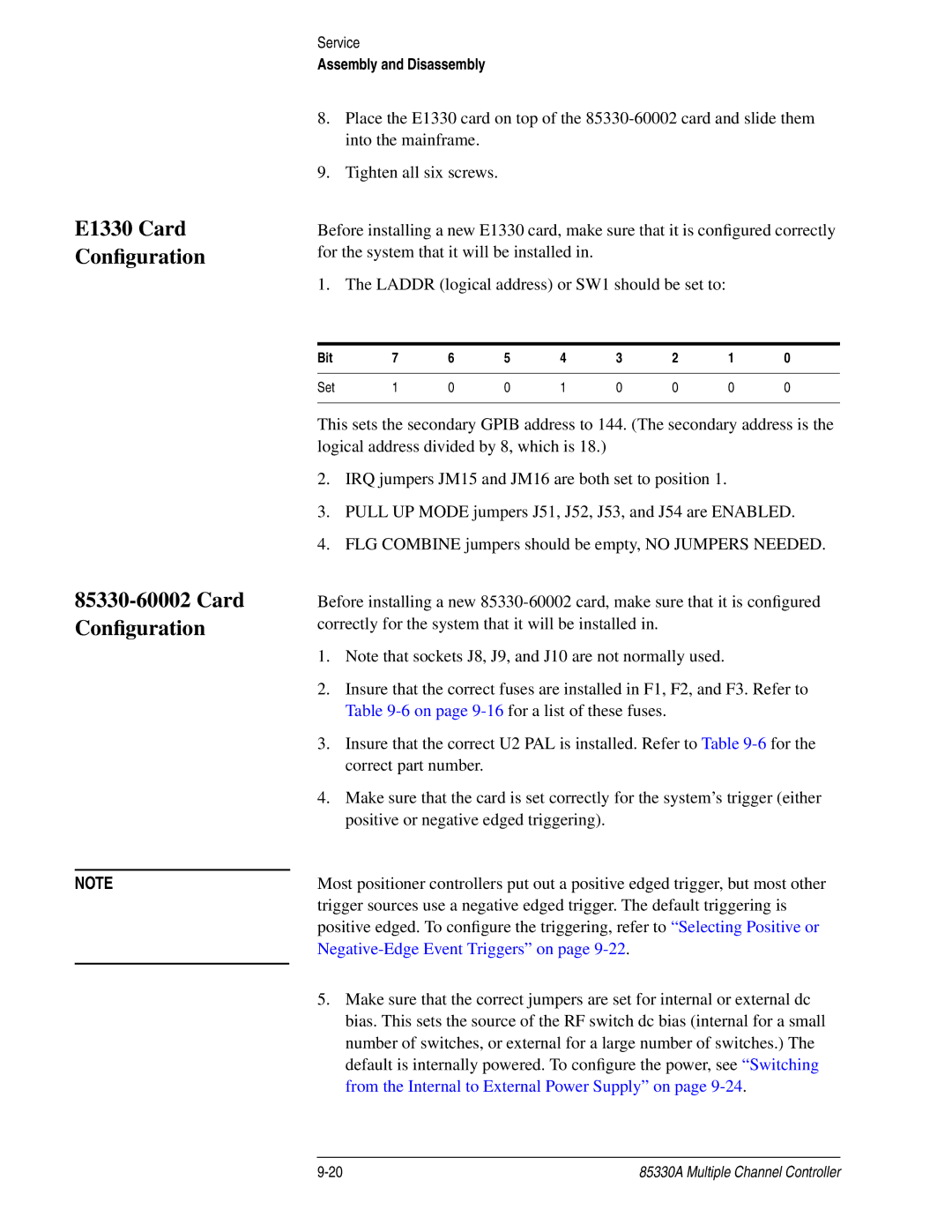
E1330 Card Configuration
85330-60002 Card Configuration
NOTE
Service
Assembly and Disassembly
8.Place the E1330 card on top of the
9.Tighten all six screws.
Before installing a new E1330 card, make sure that it is configured correctly for the system that it will be installed in.
1. The LADDR (logical address) or SW1 should be set to:
Bit | 7 | 6 | 5 | 4 | 3 | 2 | 1 | 0 |
|
|
|
|
|
|
|
|
|
Set | 1 | 0 | 0 | 1 | 0 | 0 | 0 | 0 |
|
|
|
|
|
|
|
|
|
This sets the secondary GPIB address to 144. (The secondary address is the logical address divided by 8, which is 18.)
2.IRQ jumpers JM15 and JM16 are both set to position 1.
3.PULL UP MODE jumpers J51, J52, J53, and J54 are ENABLED.
4.FLG COMBINE jumpers should be empty, NO JUMPERS NEEDED.
Before installing a new
1.Note that sockets J8, J9, and J10 are not normally used.
2.Insure that the correct fuses are installed in F1, F2, and F3. Refer to Table
3.Insure that the correct U2 PAL is installed. Refer to Table
4.Make sure that the card is set correctly for the system’s trigger (either positive or negative edged triggering).
Most positioner controllers put out a positive edged trigger, but most other trigger sources use a negative edged trigger. The default triggering is positive edged. To configure the triggering, refer to “Selecting Positive or
5.Make sure that the correct jumpers are set for internal or external dc bias. This sets the source of the RF switch dc bias (internal for a small number of switches, or external for a large number of switches.) The default is internally powered. To configure the power, see “Switching from the Internal to External Power Supply” on page
85330A Multiple Channel Controller |
